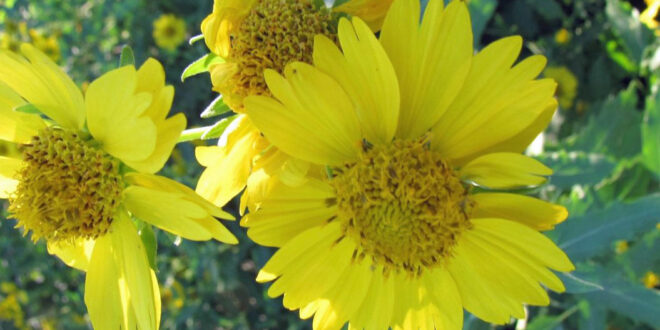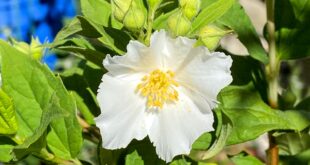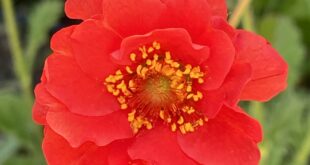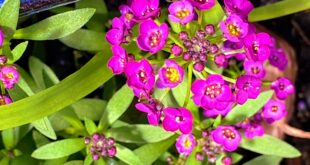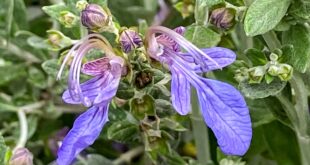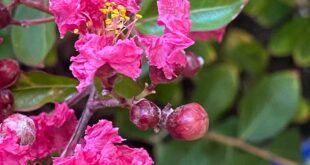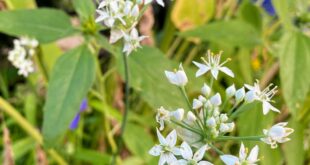If you are looking for a cheerful and easy-to-grow flower that can thrive in dry and sunny conditions, you might want to consider verbesina encelioides. Also known as golden crownbeard, gold weed, or wild sunflower, this annual plant belongs to the aster family and is native to many parts of the United States and Mexico.
Verbesina encelioides produces masses of bright yellow flowers, up to 2 inches across, that resemble small sunflowers. Each flower has 8 to 15 yellow rays and a yellow center disk packed with 80 to 150 tubular florets. The flowers bloom from spring to fall and attract bees, butterflies, and moths. The plant has upright, stiff, branched stems and silvery green leaves that are toothed and nearly triangular. The plant can grow up to 2 to 5 feet tall and spread up to 3 feet wide.
Verbesina encelioides is not fussy about the soil type and can grow in poor or rich soils, as long as they are well-drained. It prefers full sun exposure and can tolerate drought and heat. It is relatively pest and disease free and deer resistant. It is a fast-growing plant that can self-seed freely in optimum conditions, so you may want to deadhead the flowers to prevent unwanted seedlings. You can also collect the seeds and sow them in the spring or fall.
Verbesina encelioides is a great choice for adding a splash of color and prairie charm to your garden. You can use it as a border, a filler, or a backdrop for other plants. It is also suitable for naturalized areas, cottage gardens, prairies, and meadows. It can create a stunning display when planted in large groups or mixed with other wildflowers.
If you are interested in growing verbesina encelioides in your garden, you can buy seeds or plants from reputable nurseries or online sources. You can also check out some of the links below for more information and tips on how to care for this beautiful and hardy flower.
